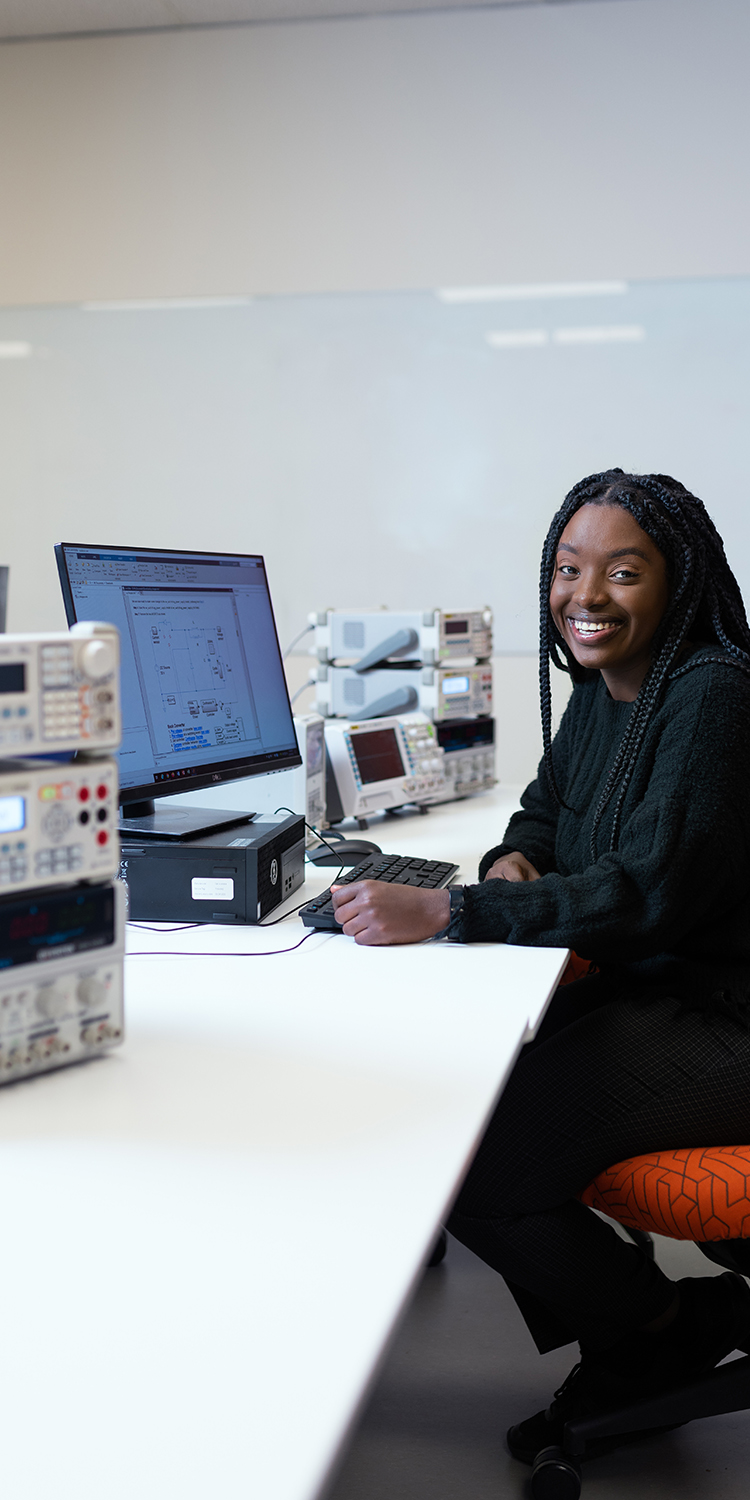What you'll learn
Our Bachelor of Engineering (Electrical and Electronic) (Honours) provides a solid grounding in the knowledge, principles, technical and professional skills required to practice as a qualified electrical and electronic engineer.
In your first year, you’ll develop a strong, general foundation in engineering principles before moving into electrical and electronic focused courses in second year.
As you progress, you’ll also explore areas of interest through a range of elective courses, such as:
- Machine learning and vision systems
- Microcontroller interfacing and applications
- Radio frequency (RF) engineering
- Renewable and distributed power generation
- Robotics and automation
- Telecommunication system security.
Throughout, you’ll develop your creativity and technical skillset through substantial design projects and practicals.
In your final year, you’ll undertake a major honours research project, with industry representatives or academic researchers acting as your clients.
As part of your studies, you’ll also complete up to 12 weeks of professional work placements. These placements provide an opportunity for you to apply the skills and knowledge you've acquired throughout your degree in real workplace settings.
Assessments for this degree include reports, case studies, presentations, essays and assignments, online quizzes, examinations, industry-relevant research projects, lab/practical team-based projects, e-portfolios and reflective practice.
You’ll be able to complete majority of first year common courses and second year courses at either our Adelaide City or Mawson Lakes Campus with some potential cross-campus study required. Throughout your degree, you’ll gain access to cutting-edge facilities across both campus locations to enhance your overall learning experience.









